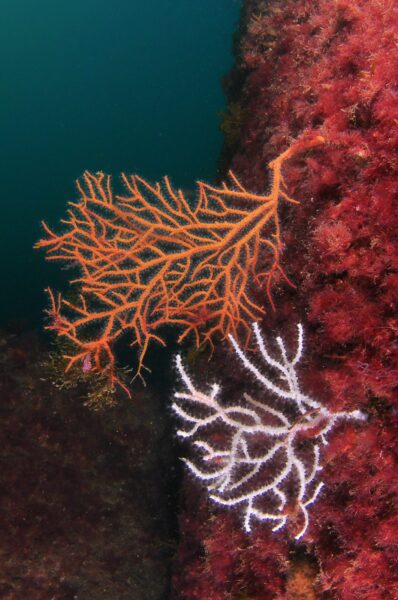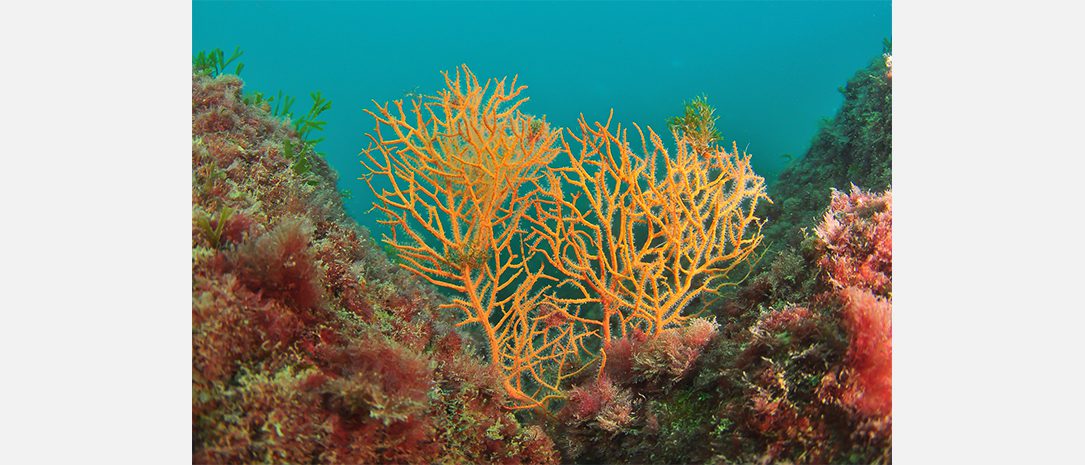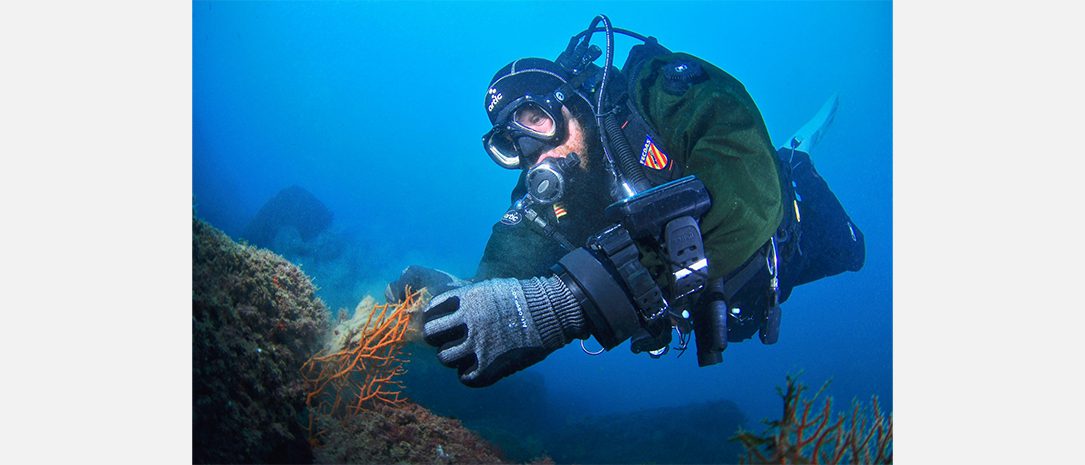

Nature finds a way to carve out pockets for itself even in conditions where that would seem improbable. In 2020, a gorgonian forest was discovered 19 metres deep next to the entrance to the Port of Barcelona. The researchers from the Institut de Ciències del Mar-Consejo Superior de Investigaciones Científicas (ICM–CSIC) and the Catalan Federation of Subaquatic Activities began to study the colony and consider actions to promote its preservation and growth in the area. Thereby increasing the dimensional capacity of the seafloor to include providing shelter and habitat to other speces.
Through a collaboration with Belong to Sea, a local organisation committed to improving sea biodiversity and supporting sustainable culture adoption in business, alongside other local businesses including MB92 Barcelona, the aim was to raise awareness with local communities and get them involved in the conservation project.

What are Gorgonia?
“Although they resemble plants, like coral, gorgonians are animals, and their job is to create structure. They are essential to improving the conservation of the seabed and play a similar role to trees, acting as a natural habitat or refuge for other species around them”, highlights Josep Maria Gili, a CSIC professor who works at the ICM.
“Although we are in an early stage, we feel optimistic about the possibility that the Leptogorgia sarmentosa gorgonia, present in the waters of Barcelona, can help us improve and repopulate the marine ecosystem of our city. The larval and juvenile phases of a large number of species such as sea bream, sea bass or seahorses survive better with gorgonia.”
Repopulation at 19 metres deep
“Gorgonia Barcelona” is carried out in 3 phases to help increase the populations of this species on the Barcelona coast, highly resilient in urban environments. Restoration techniques based on transplantation are used:
- First phase: monthly immersion at 19 metres deep planned in the project by Belong to Sea and the ICM-CSIC with the collaboration of divers from FEDCAS (Catalan Federation of Underwater Activities) who help to program the outings and ensure the technical component of them.
- Second phase: focused on the maintenance and recovery of gorgonians in the experimental aquariums of the ICM. Belong to Sea organizes visits with the companies that participate in the project, administration, associations or schools, to create social awareness about the problem that the biodiversity of the marine environment in Barcelona is facing, and to get to know the gorgonians up close, as well as awareness activities in team building format.
- Third phase: dedicated to the transport and return of gorgonian colonies to the sea and to the follow-up of recovered and transplanted colonies to continue their survival and growth.

Cristina Arenas, co-founder of Belong to Sea, highlights “the importance for the city that a project of this nature comes out of the laboratory and can become a reality that helps mitigate the negative effects of the climate emergency at a local level.” In addition, Arenas sees a very important change in business mentality in Barcelona with the joining of local companies such as MB92 Barcelona to this project: “The involvement of the private sector, which we channel from Belong to Sea, demonstrates to what extent sustainability is an indispensable part of the strategy of local companies.”
Marc Hervás, MB92 Group Sustainability Coordinator adds that “We are pleased to be part of this project that merges scientific rigour and local action. Soft corals are the foundation of many marine ecosystems around the world, and the resilience displayed by gorgonia opens possibilities to improve ecosystems in high impact areas such as ports and urban beaches”.
For her part, María Coll, co-founder of Belong to Sea, asserts that “the program acts as a driving force for the blue economy, which already represents 4.3% of the city’s GDP and 1.4% of employment.” Coll assures that “the Catalan capital has the optimal conditions to develop a project of the magnitude of Gorgonia Barcelona, since it has companies very committed to sustainability and the environment, with a great scientific capital and with a society increasingly involved in the preservation of the urban environment that demands tangible actions on the ground in the face of biodiversity loss.”
For more information on this project, please visit belongtosea.com
Hello, how can we help you today?
- I want to request a quote
- I want to get in touch with an MB92 Barcelona representative
- I want to get in touch with an MB92 La Ciotat representative
- I want to get in touch with an MB92 Red Sea representative
- I want to know more about MB92 Red Sea
- I want to apply for a job vacancy
- I want to get directions